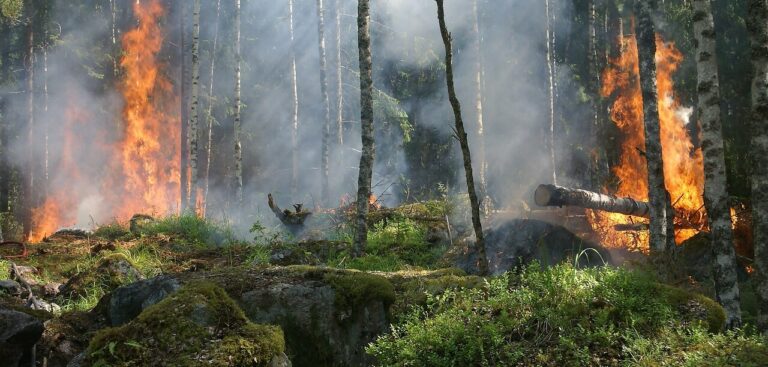A report from the Finnish Meteorological Institute (FMI) has found that the pollen season in certain parts of Europe starts almost a month earlier than it did 40 years ago. The increasing temperatures and drought have also increased the risk for wildfires during the last 20 years. However, this does not necessarily mean that everywhere people are more exposed to fine particles originating from fires.
The conclusions were published in the 2022 Lancet Countdown global and European reports, where FMI researchers investigated the change in the pollen season in Europe during the last 40 years focusing on birch, alder and olive trees. Currently, the pollen season starts earlier, and it also ends earlier, so that the duration of the season is only slightly longer than 40 years ago.
The largest shifts in the pollen season start are especially visible at high altitudes such as the Alps, Balkan and Scandinavian ridge where the shifts can reach one month. In mainland Europe, the season starts on average 10-20 days earlier than 40 years ago.
Increasing temperatures and wildfires
The researchers modeled how the fine particles from forest fires spread in the atmosphere and estimated how much people are exposed to harmful fine particles. The results indicate that in Europe the particulate matter concentrations originating from fires are generally decreasing, despite the changes in climate favor wildfires.
Similar effects are observed in other parts of the globe. Even if the drought and extreme heatwaves have become more frequent in many places, for example in Australia, there may be no clear increase in fire-related fine particle concentrations during the research period 2003–2021. Noticeable increase in concentrations was observed in India, Eastern Russia and Western parts of Canada and the USA, except for Alaska where the concentrations have been decreasing. A decrease was visible in the Amazonian region, Argentina, Kazakhstan and in some parts of Africa. Generally, it is mainly the increasing world population and its distribution that pushes up the population exposure to harmful fire-originating aerosols.
Fossil-fuel addiction
The 2022 Lancet Countdown report tracks the relationship between health and climate change across more than 40 indicators. The Lancet publication considers how these indicators evolve globally while the Lancet Public Health publication concentrates on the European region.
According to the 2022 Lancet Countdown report, climate change threatens to undermine the last 50 years of gains in public health, with more intense and frequent extreme weather and weather-related events, increased heatwave exposure, alteration in the spread of infectious diseases, and exacerbated poverty and mental ill-health. The negative impacts on health are amplified by the fossil-fuel addiction of society.
To read more from the Lancet Public Health report, click here.



